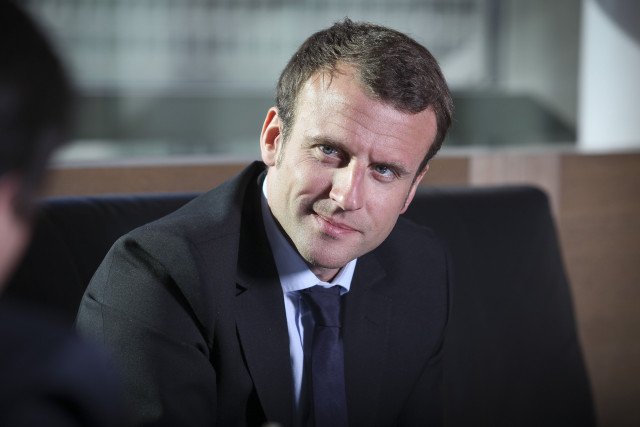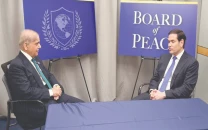Macron: France's youngest president resets French politics
"France is in vogue again, France is cool," Spanish newspaper says

French President Emmanuel Macron PHOTO: AFP
Just four weeks after taking office and 14 months after founding his Republique en Marche (Republic on the Move) party, his candidates swept away hundreds of rivals from the traditional parties which have dominated French politics for half a century. Since taking office, "le Kid", as L'Express news weekly nicknamed him, has made an instant impact on the international stage in meetings with leaders including Germany's Angela Merkel, Russia's Vladimir Putin and India's Narendra Modi.
Macron, Le Pen set for French election run-off
The 39-year-old even tried to intimidate US President Donald Trump with a memorable white-knuckle handshake at a NATO summit and later mocked his decision to pull the United States out of the global Paris accord to combat climate change. Macron's English-language appeal to "make our planet great again" - a riff on Trump's own slogan of making America great again - became a social media sensation.
"France is in vogue again, France is cool," Spain's El Pais newspaper wrote, comparing the "Macronmania" to the enthusiasm that swept the US after Barack Obama was elected president in 2008. A column in The New York Times on Saturday by leftwing writer Timothy Egan also claimed that France now had "John F. Kennedy glam and New Frontier energy". At home, Macron has redrawn the political map by attracting moderates from the left and the right to his new party which has created a new centrist force at the heart of French politics.
The son of two doctors from the northeastern city of Amiens, Macron has made a career out of breaking the mould. The former investment banker is married to his 64-year-old former teacher Brigitte, a divorced mother-of-three whom he fell for as a teen. His path to France's highest office is as unusual as their inter-generational love story. Macron had never held elected office before throwing his hat into the ring to replace president Francois Hollande, two years after Hollande promoted him from political unknown to become economy minister.
Landslide majority in sight for Macron as French elect parliament
In a country where political careers have traditionally been built over decades, Macron took the risk of founding his own party rather than trying to seek the nomination of the Socialists or the Republicans, the heavyweight parties on the left and right. Using his image as a moderniser, he attracted volunteers to his party, which was modelled partly on Obama's 2008 campaign. The downfall of the Socialists and a scandal engulfing the conservative Republicans fuelled his rise, allowing him to lead the battle against the far-right's Marine Le Pen, whom he beat soundly in the presidential run-off on May 7.
Since his inauguration Macron has sought to restore lost prestige to the presidency, delivering his victory speech in front of the Louvre museum - a former royal palace - and hosting Putin at the palace of Versailles. He has also kept a tight rein on communications, speaking very little in public and being accused by some journalists of trying to interfere with the work of the press. But the hardest part may lie ahead as he seeks to implement a programme that promises to cut thousands of public sector jobs, overhaul labour legislation and deepen the European Union.
He also plans to cut taxes on companies, introduce a form of positive discrimination to fight poverty in the most deprived areas, and reform unemployment benefits and pensions. While REM will hold a huge majority in parliament, Macron could struggle to get his plans for far-reaching labour reforms past the fiery French streets where hard-left trade unions are gearing up for a fight. Opponents have also seized on record low turnout for the parliamentary elections - less than half of voters cast ballots - which could undermine his claims to hold a strong mandate for change.
Macron elected next French president as Le Pen concedes defeat
"The rise of Macron to the presidency seems to have plunged the country into a state of indifference and weariness," far-right leader Marine Le Pen said after she secured a seat in the parliament for the first time on Sunday. Far-left leader Jean-Luc Melenchon, who will be another formidable opponent in the parliament after winning a seat from the southern port of Marseille, said voters had gone on "civic general strike" by not voting in the parliamentary polls.
Macron was also embroiled in early blunder after being caught on camera joking about the flimsy "kwassa-kwassa" boats that transport migrants from the Comoros Islands off the coast of Africa to French territories. "The kwassa-kwassa doesn't do much fishing, it carries Comorians," he said laughing. The remark caused outrage given the thousands of migrants who have died in such crossings



















COMMENTS
Comments are moderated and generally will be posted if they are on-topic and not abusive.
For more information, please see our Comments FAQ